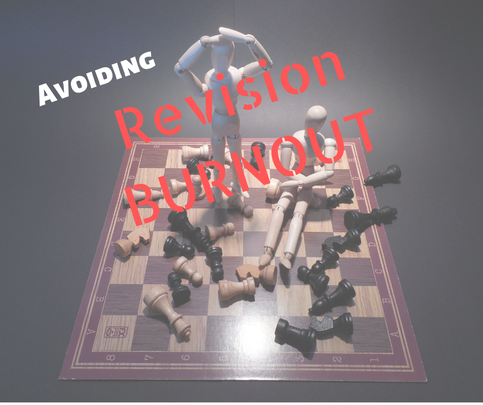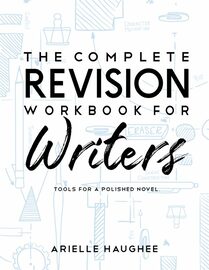|
Revision can be a highly emotional process. One day everything in the chapter is fixed perfectly, piece of cake. You were born for this. The next day you spend HOURS on one paragraph. Why are you doing this? Four root canals with no numbing agents would be less painful than this. Things can go from bad to worse after you spend months and months fixing and rewriting only to feel like you've made no progress in making the book better or you see how much more there still is to fix. You think you'll never finish. Then a common, yet terrible thing happens to writers. Revision burnout. What is Revision Burnout? Revision burnout occurs when a writer becomes frustrated with the time and entanglements of revision and quits. They walk away from their manuscript, sometimes never coming back. Oftentimes a little time and space are good for a project, giving the writer a chance to get a mental break and gain perspective. Too much time is a bad thing. The longer a person steps away from the project, the more they forget about the smaller details, and the longer it takes for them to reread and remember what they wrote about before jumping back in. You can also lose the sense of tone and direction you originally had with the work, making the new parts not match up as well with the older ones. This doesn't mean it's impossible to jump back on a project you didn't finish from three years ago, it just means that it will take time to recapture your sense of the story. The real threat with revision burnout is complete abandonment. The biggest crime in writing is to give up on your work. You've made it this far and finished the draft. How many hours, days, weeks, months, maybe even years did that take? Don't quit now because it's hard. I have yet to hear an author preach about how easy writing is. Yes, some projects will need more work than others and yes, not all projects are going to be award winners. But the learning and growth of you as an author is critical. Going through the whole journey and finishing your big projects will teach you more about how you work and your processes than any webinar or craft book can. Besides, wasn't this your dream? Didn't you picture holding this book in your hands...signing the title page...having fans desperately want your next book...? Or maybe you felt so passionate about the story that you just needed to get your work out there. Revision is hard. Period. That doesn't mean you should abandon your work. Seven Tips for Avoiding Revision Burnout Goal Setting: Make a realistic timeline for finishing your revision. Adapt it as necessary as life happens. Sometimes you get sick or have to move or have to help family members. Adjust your timeline as needed but stay focused on your end goal of having your project completed. Revision Routines: Develop a routine for revision each week. You can plan something such as an hour each day in the early mornings or all day on Tuesdays and Fridays. This is going to depend on your schedule. The emphasis is on writing down what days and times are for revision only. Do not let yourself get distracted or work on other things during revision time. Focus! Accountability: Have an accountability system in place to check in with your overall progress on your project and also to make sure you're sticking to your routine. You can have a writer friend you email every Sunday night to check in or make yourself post your progress on social media every Tuesday. Whatever works for you. This is a key piece in long-term success and finishing your project in your desired time frame. Recognize Fatigue and Take Appropriate Breaks: If you find yourself hating your story or sitting down to revise becomes entirely torturous, a short break may help you adjust your frame of mind. Take a week off and spend some time in nature or with good friends who make you laugh, anything that energizes you. Do not let your break go on for weeks. Remember the longer you are away from a project, the longer it takes to jump back in. Focus on Progress, not Perfection: You don't have to get your story perfect in the first round of revision. Or the second. Or the third. It can certainly seem like you are revising in circles sometimes. Remind yourself that every time you sit down and revise, you are making the story better. Focus on one story issue at a time and pat yourself on the back as you fix problems. Keep in Touch with your Love of the Story: You will hate your story from time to time. It's completely normal. My loathing for my work peaks at about round three of revision. Take a journey back in your memory to when you first got the idea for this book. What was the spark? What made you excited? I like to write my story ideas down in a notebook and I will go back to that notebook to recapture my excitement. You can also make a list of your favorite scenes or lines from the book. Stay connected to what you love in your work. You may have to fight yourself for it. Build a Support Network: Writers make the best allies in the revision process. They know how hard it is. If you haven't already, build relationships within the writing community either in person or online. Other writers can give emotional support and also ideas for when you're stuck. Writing a book can be a very lonely journey so reach out to others in the community for support. Now you have some tools in your toolbox for avoiding revision burnout. Keep working on your revisions and don't let negative emotions stop you from achieving your goal. Happy revising! Want more revision posts? Check out some others I've written:
2 Comments
3/31/2020 07:19:13 pm
Thank you for the tips you have given us. Revision might be heartbreaking after days and night of handwork, but we need to accept the fact that it is part of the process. You just have top change your perspective and see things better. Being too tired from wiring your piece is normal, but it is also a product of your passion so you should never give up on it. If there are revisions, I am sure that it’s for the betterment of your work and not for anything else.
Reply
Leave a Reply. |
AuthorArielle Haughee is the owner and founder of Orange Blossom Publishing. Categories
All
|



 RSS Feed
RSS Feed